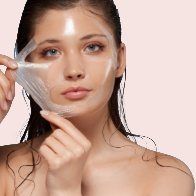Chemical peels are a versatile and effective treatment for addressing a wide range of skin concerns. Whether you’re dealing with uneven skin tone, acne scars, fine lines, or sun damage, a chemical peel can help to exfoliate and rejuvenate the skin. By removing the outermost layers of damaged skin, chemical peels stimulate collagen production and reveal fresher, smoother skin underneath.
Chemical peels are available in various strengths, from light peels that require minimal downtime to deeper peels for more significant results. This customizable treatment makes it an ideal solution for anyone looking to improve their skin’s texture and appearance without undergoing invasive procedures.
Comprehensive Overview of Chemical Peels
Chemical peels involve applying a solution to the skin that gently exfoliates and removes the outer layers of dead and damaged skin. Depending on the depth of the peel, the solution can penetrate to different levels of the skin to target specific concerns. Lighter peels use alpha-hydroxy acids (AHAs) or beta-hydroxy acids (BHAs), while medium and deeper peels may use trichloroacetic acid (TCA) or phenol for more dramatic results.
The procedure typically takes 30 to 60 minutes, and while some peels may cause mild tingling or burning sensations, most patients find the process to be tolerable. After the treatment, the skin will peel over several days to reveal a brighter, more even complexion.
Key Benefits of Chemical Peels
-
Improves skin texture: Chemical peels smooth out rough skin and reduce the appearance of fine lines.
-
Brightens complexion: By removing damaged skin cells, peels reveal a brighter, more youthful glow.
-
Reduces acne scars and discoloration: Chemical peels can fade dark spots and improve the appearance of scars.
-
Customizable treatment: Chemical peels can be tailored to your skin type and specific concerns.
Are You a Candidate for Chemical Peels?
Chemical peels are suitable for a wide range of skin types and concerns. Ideal candidates are those who want to improve skin tone, texture, and clarity. Whether you’re looking to reduce fine lines, treat acne scars, or refresh dull, tired-looking skin, a chemical peel could be the right choice for you.
A consultation with a skincare specialist will help determine the type of peel that best suits your skin type and goals. Light to medium peels are safe for most skin types, while deeper peels may require a more thorough skin evaluation to ensure safety and effectiveness.
Conditions That May Disqualify You
While chemical peels are safe for many individuals, certain conditions may disqualify you from receiving treatment. These include active skin infections, open wounds, or conditions like eczema or psoriasis that can worsen with skin exfoliation. Pregnant or breastfeeding women should also avoid chemical peels, particularly medium and deep peels.
Additionally, if you’ve recently undergone facial surgery or are using certain acne medications like isotretinoin, it’s important to consult with your provider before scheduling a chemical peel. Your skincare specialist will help determine if a chemical peel is a safe and effective option for you.
What Issues Can Chemical Peels Address?
Chemical peels are designed to address a variety of skin concerns, including fine lines, wrinkles, acne scars, hyperpigmentation, sun damage, and uneven skin texture. By exfoliating the top layers of skin, chemical peels promote the regeneration of new, healthier skin cells, resulting in a smoother and more youthful complexion.
This treatment is ideal for individuals looking to improve their skin tone and texture, minimize signs of aging, and achieve a more radiant glow. Different types of chemical peels can be customized to treat specific concerns, from mild peels for subtle rejuvenation to deeper peels for more dramatic results.
What to Expect During a Chemical Peel Treatment
A chemical peel treatment begins with the cleansing of your skin to remove impurities and oils. Your provider will then apply a solution tailored to your skin type and concerns, which may include alpha hydroxy acids (AHAs), beta hydroxy acids (BHAs), or stronger ingredients like trichloroacetic acid (TCA) for deeper peels. The solution exfoliates the skin and stimulates cell turnover.
Depending on the type of peel, the treatment can last anywhere from 20 to 45 minutes. During the procedure, you may feel a mild tingling or stinging sensation. After the peel is applied, it will be neutralized or left to self-neutralize, followed by post-treatment care instructions.
Results and How Long They Last
-
Immediate Results: After healing, expect a brighter and more youthful complexion within 7-10 days.
-
Long-Lasting: Results from deeper peels can last several months, especially with proper skincare maintenance.
-
Boosted Over Time: Regular peels help maintain smoother skin, minimize fine lines, and keep the complexion glowing.
-
Customizable: Your provider can adjust the strength of the peel for continued improvement with each treatment.
Recovery and Downtime
Recovery from a chemical peel depends on the strength of the peel. Superficial peels typically require minimal downtime, with mild redness and flaking for a few days. Medium to deep peels may involve more noticeable peeling, redness, and swelling, with recovery lasting up to two weeks. Sun protection is essential during recovery to prevent post-treatment pigmentation issues.
After treatment, you will need to follow a gentle skincare routine to protect and nourish your skin. Most patients can return to their normal activities quickly, although it's important to avoid sun exposure and rigorous physical activity during the recovery period.
Alternatives to Chemical Peels
If you're looking for alternatives to chemical peels, there are several options that can provide similar rejuvenating effects. These include microdermabrasion, and dermaplaning, all of which help exfoliate the skin and promote collagen production. Each treatment has its own benefits and may be recommended based on your skin type and goals.
Consult with a skincare professional to determine the best approach for your specific concerns. In some cases, combining chemical peels with other treatments can enhance your results and provide more comprehensive skin rejuvenation.


